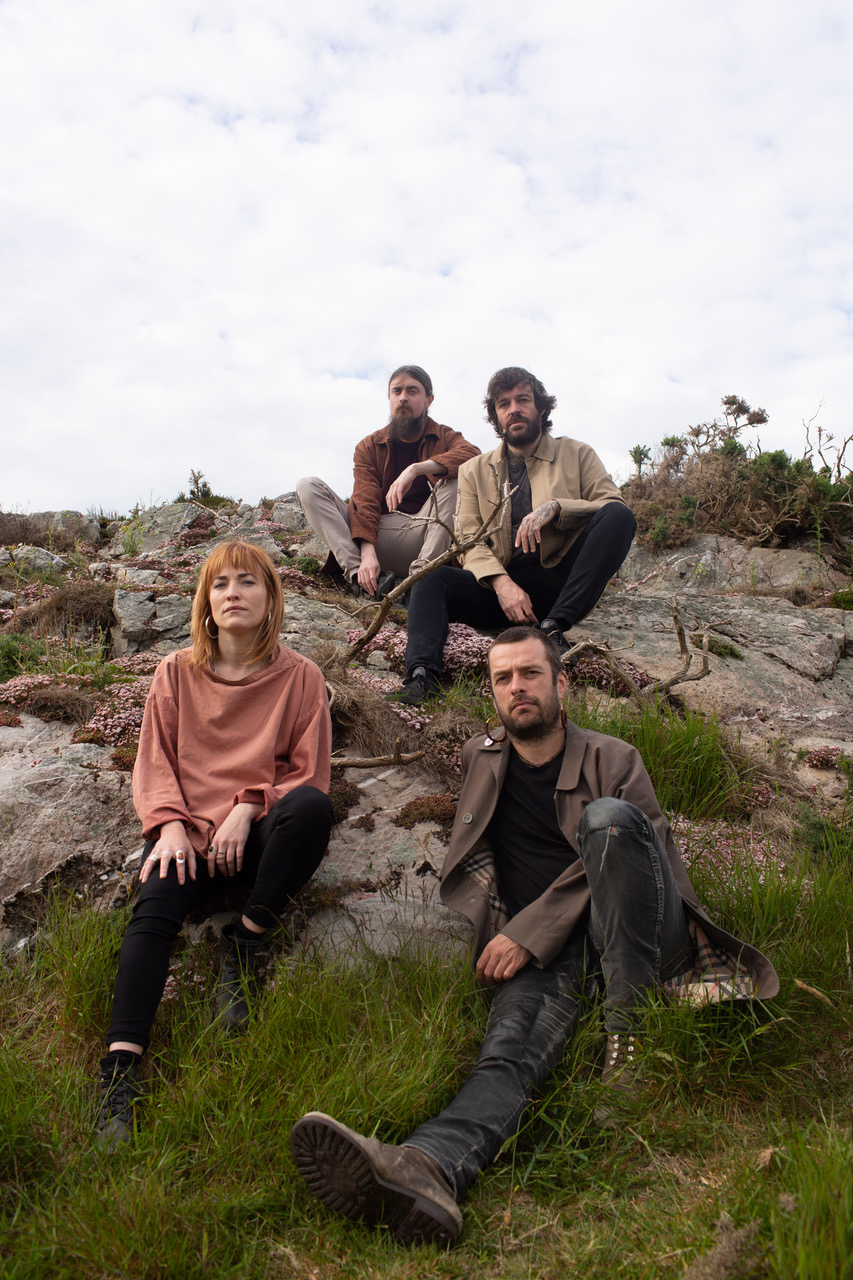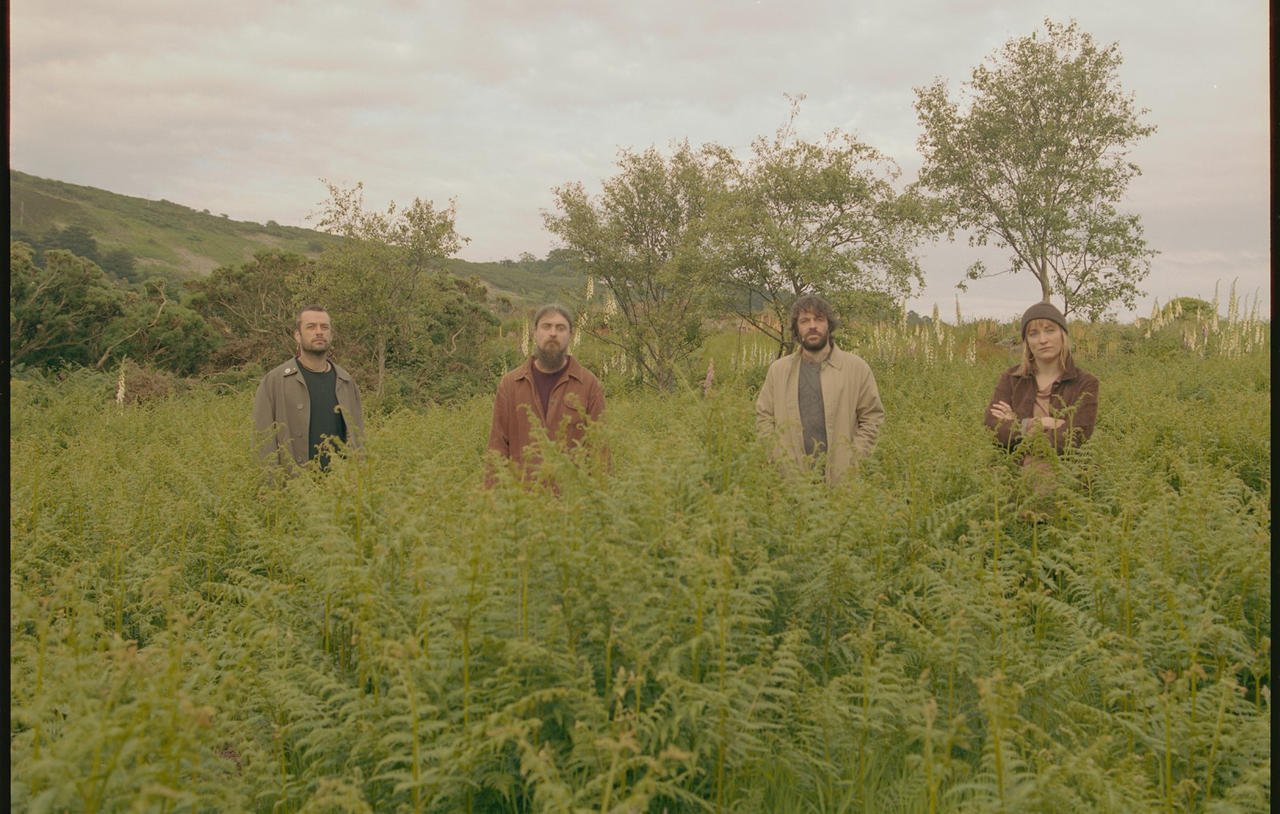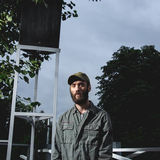
Photo: Ellius Grace
Let’s talk about how you became musicians in the first place and came to traditional music.
Cormac: I’ve been playing fiddle since I was six. My parents got me into it and encouraged — my mom found a teacher who came home and later after regular school I went to another one myself — so I had music classes until I was fifteen.
Ian: When I was growing up I was more into metal and punk and noisier stuff. And around seventeen I became interested in, not exactly traditional music, but known bands like The Pogues and Planxty — you know, bands which played traditional music with a more popular and visible side of things. And in my twenties, I became more and more interested in more traditional stuff like singing and learning
uilleann pipes— indigenous bagpipes of Ireland. So eventually I would have met Cormac and Radie in Dublin because we would play music all around town.
We got along really well because I used to be in a punk band with Cormac’s big brother back in 1996 so I knew members of his family already. So, we became friends and started playing together so Lankum started.
So, for you there were no borders between punk and traditional music. Was it something that happened originally when you shifted from one field to another?
Ian: When I was growing up in Ireland, lots of people in the punk scene that I knew were interested in traditional songs. Because a lot of those songs have a very anti-imperialist message. And because of that it was similar to what people sing about in punk. So, there would have been a lot of parallels and similarities in the message from two different scenes and genres. It was quite a normal thing, you know, it might be a party, people are playing punk records and then they put on The Dubliners or Andy Irvine.
In my area, in North Caucasus, people usually consider this music as a heritage and as something to be proud of, but not for the music itself, but because it can be marketed as national music. Does this situation resemble the one in your country?
Ian: I think there are a number of different levels that traditional music exists on. On one level, there is the kind of cheap side when it’s made only for tourists and maybe there is not so much thought and originality gone into it. And then, on another level, there are people who are really good musicians and they just play the music in pubs and at home for themselves. And they are really brilliant musicians and singers. And then there are also lots of groups who make their own music as well. So, there are some people who maybe see it as something belonging to the past or to the museum. But I think there are even more people who actually keep it alive by playing it all the time.
And now in Ireland there are a lot of bands who are really making their own kind of sound — people who we will be friends with, who are coming up with new ways of playing and exploring the tradition.
What do you see as new about your way?
Ian: It seems that every generation finds its own way to work with traditional music, so okay, there was The Dubliners’ approach in the 60’s and in the 70’s there were Planxty and Sweeney's Men and The Bothy Band. In the 80’s and 90’s there were a lot of people doing it with synthesizers in a kind of way I’m not interested in. And now people come at the tradition with a very fresh perspective and not afraid to bring other sounds into the music.
With Lankum we try to give it a darker and heavier sound because of the other music we are into, like metal, drone, doom, trying to bring their elements. But there are other artists around who also don’t feel like they have to play music in a certain way just because somebody did it in the 1960’s or 70’s. In the past people could think that since you play traditional music in a group, you have to sound like Planxty The Bothy Band. But that sound is only the result of the innovation that people made in the 70’s. So, I think people need to make their own innovations for the time they are living in.
Cormac: I think for us it is about the desire to explore a bit, finding things which we love and coming into sessions with them and singing a lot. We are immersed in it so we bring various subtle elements, like four-part harmony together, for example.





